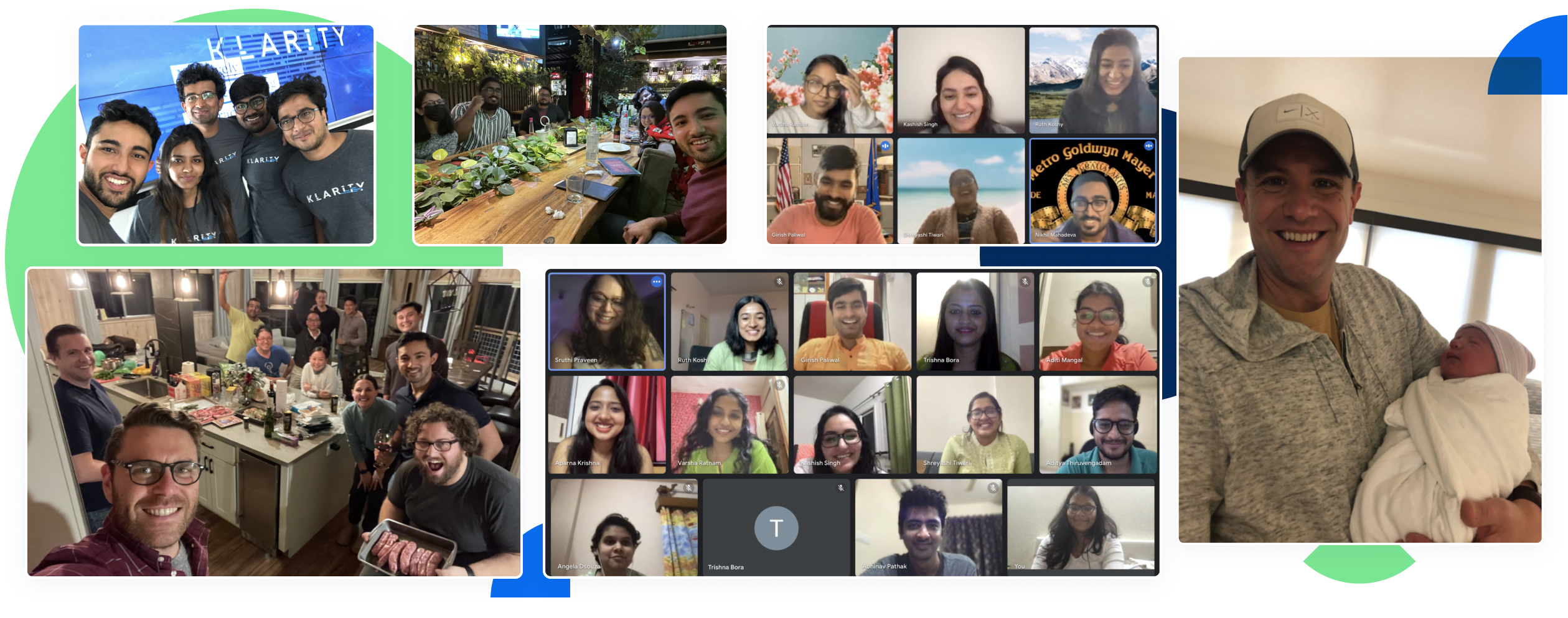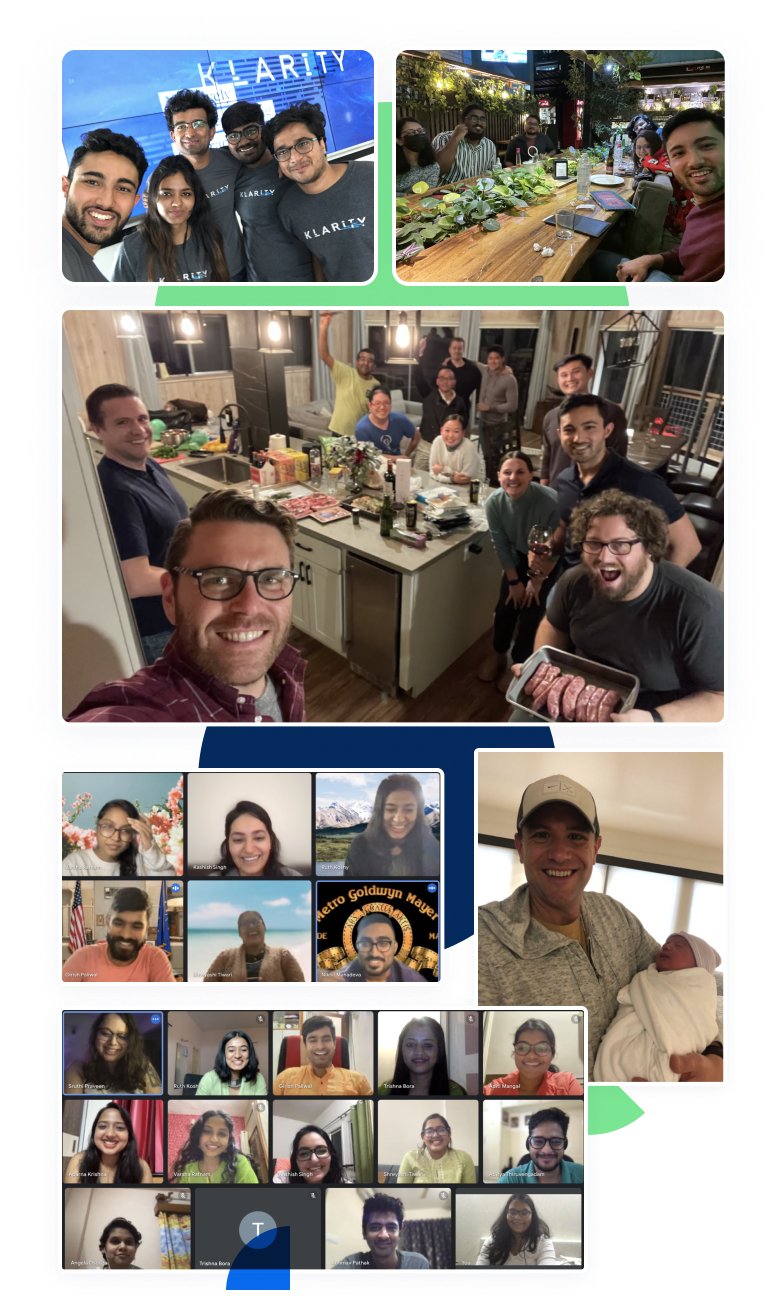Making Year-End Close Easier:
Practical Steps
for Revenue Accounting Teams
Year-end close is tough for every team, but the right approach can make all the difference. From tackling manual bottlenecks to staying ahead of contract reviews, this blog explores how strategic adjustments—like standardization and automation—can ease the process and set your team up for success.
Making Year-End Close Easier:
Practical Steps
for Revenue Accounting Teams
Year-end close is tough for every team, but the right approach can make all the difference. From tackling manual bottlenecks to staying ahead of contract reviews, this blog explores how strategic adjustments—like standardization and automation—can ease the process and set your team up for success.
Making Year-End Close Easier:
Practical Steps
for Revenue Accounting Teams
Year-end close is tough for every team, but the right approach can make all the difference. From tackling manual bottlenecks to staying ahead of contract reviews, this blog explores how strategic adjustments—like standardization and automation—can ease the process and set your team up for success.
Don't have time now? Download it.
Why customers choose Klarity
Why Year-End Close Feels So Hard
As we head into year-end close, many revenue accounting teams are asking the same question: how can we do more with less—on an impossibly tight timeline?
The list of tasks feels endless: manual reconciliations, audit prep, and reviewing contracts in accordance with ASC 606 requirements. The heightened pressure on accounting teams demands smarter solutions to maintain both accuracy and team wellbeing. Teams often hit their breaking point during year-end close, when tight deadlines meet unexpected challenges.
But year-end close isn’t just about hitting deadlines. It’s about building confidence in your numbers while giving your team the bandwidth to address unexpected issues—or even spend time with their families.
Challenges Teams Are Facing
- Manual Processes Are Slowing Everything Down: Extracting and validating data from contracts is time-consuming and error-prone, leaving little space for strategic work.
- Contracts Are Backlogged: When contracts aren’t reviewed as they come in, they pile up, creating a rush to review and reconcile everything at the end of the quarter.
- Documentation Isn’t Consistent: Non-standard contract terms, pressure to increase sales and unstructured templates make it harder to align with ASC 606 requirements.
It’s no wonder year-end close feels chaotic—but there’s a better way.
Shifting to a Proactive Approach
For many teams, the key to a smoother close is focusing on the things that matter most—early and often. Here’s what we’ve seen work:
1. TEAMWORK
Collaborate with Deal Desk to identify risky deals or bespoke contracts before they hit your desk. This makes it easier to prioritize agreements where you know issues are likely to arise.
2. WORK AHEAD
Review contracts as they come in, instead of waiting for them to backlog. Incremental review saves precious hours when deadlines are looming and gives you more room to address critical issues.
3. STANDARDIZE
Standardization is one of the biggest ways teams are building efficiency into their processes:
- Contract Templates: Create consistent ASC 606 templates that streamline documentation and review processes. Implementing standardized templates with clear application of judgement enables more efficient automation of routine contract analysis.
- Reward Consistency: Work with sales to introduce incentives for the team to maintain templated positions to ensure conclusions are straightforward and consistent across the board.
- Documentation & System Alignment: Continuously improve automation between your CPQ, CRM, and ERP systems to eliminate manual reconciliation work. Consistent formats and connected systems not only reduce data discrepancies, but also helps reduce time to close.
4. AUTOMATE
Take notes about what portions of the business are taking significant manual time to intervene to find opportunities to automate. By automating the documentation and review process, you can focus your attention on non-standard terms and high-impact agreements while ensuring routine tasks are handled efficiently.
Why It Matters
While these strategies may not turn year-end close into a two-day sprint, they can significantly reduce the pressure on your team. Proactively addressing bottlenecks ensures your numbers are accurate, compliant, and ready for audits.
And when there are no critical issues to resolve? That time can be spent with family—so your team returns refreshed and ready for the next close period.
Looking Ahead
At Klarity, we know that building confidence in your numbers starts with reducing manual work. By automating routine processes and streamlining how your team documents ASC 606 considerations, you can think of automation as your team’s insurance policy, and allow time to focus on what really matters—delivering accurate, defensible financials.
Why Customers Love It
“We are extremely excited to implement this Generative AI Technology for our customers. Klarity Architect demonstrates the superior analysis capabilities of AI using Multi Modal analysis and LLMs in real life scenarios. We believe in the impactful transformative value of AI and look forward to delivering tangible results to our customers by utilizing Klarity Architect.”
— Ahmed Zaidi, CEO, Accelirate
Find out how Accelirate cut documentation time by 67% and scaled their operations →
Life at Klarity


.gif)


